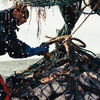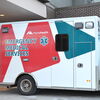Processing Your Payment
Please do not leave this page until complete. This can take a few moments.
- News
-
Editions
-
- Lists
-
Viewpoints
-
Our Events
-
Event Info
- Business Leaders of the Year Reception 2025
- Women's Leadership Forum 2025
- On the Road with Mainebiz in Bethel
- Health Care Forum 2025
- On The Road with Mainebiz in Greenville
- On The Road with Mainebiz in Waterville
- Small Business Forum 2025
- Outstanding Women in Business Reception 2025
- On The Road with Mainebiz in Bath
- 60 Ideas in 60 Minutes Portland 2025
- 40 Under 40 Awards Reception 2025
- On The Road with Mainebiz in Lewiston / Auburn
- 60 Ideas in 60 Minutes Bangor 2025
Award Honorees
- 2025 Business Leaders of the Year
- 2024 Women to Watch Honorees
- 2024 Business Leaders of the Year
- 2023 NextUp: 40 Under 40 Honorees
- 2023 Women to Watch Honorees
- 2023 Business Leaders of the Year
- 2022 NextUp: 40 Under 40 Honorees
- 2022 Women to Watch Honorees
- 2022 Business Leaders of the Year
-
-
Calendar
-
Biz Marketplace
- News
- Editions
- Lists
- Viewpoints
-
Our Events
Event Info
- View all Events
- Business Leaders of the Year Reception 2025
- Women's Leadership Forum 2025
- On the Road with Mainebiz in Bethel
- Health Care Forum 2025
- On The Road with Mainebiz in Greenville
- + More
- On The Road with Mainebiz in Waterville
- Small Business Forum 2025
- Outstanding Women in Business Reception 2025
- On The Road with Mainebiz in Bath
- 60 Ideas in 60 Minutes Portland 2025
- 40 Under 40 Awards Reception 2025
- On The Road with Mainebiz in Lewiston / Auburn
- 60 Ideas in 60 Minutes Bangor 2025
- - Less
Award Honorees
- 2025 Business Leaders of the Year
- 2024 Women to Watch Honorees
- 2024 Business Leaders of the Year
- 2023 NextUp: 40 Under 40 Honorees
- 2023 Women to Watch Honorees
- 2023 Business Leaders of the Year
- + More
- 2022 NextUp: 40 Under 40 Honorees
- 2022 Women to Watch Honorees
- 2022 Business Leaders of the Year
- Nomination Forms
- Calendar
- Biz Marketplace
Portland aquaculture co. gets first-of-kind lease to farm kelp
 Photo/David A. Rodgers
Paul Dobbins, president of Ocean Approved in Portland
Photo/David A. Rodgers
Paul Dobbins, president of Ocean Approved in Portland
Pretty soon you could be getting more of your daily recommended intake of vegetables from the ocean. At least that's the plan, according to Paul Dobbins and Tollef Olson of Ocean Approved in Portland. The small startup aquaculture company earlier this month received an experimental lease to install a specially designed kelp-growing rig on the ocean floor off of Little Chebeague Island in Casco Bay. The lease is the first granted for the cultivation of seaweed in Maine and, according to Dobbins, the first in all of the United States, as well.
"Kelp aquaculture is a $7 billion a year industry worldwide," says Paul Dobbins, president of Ocean Approved. "Twenty-eight countries now cultivate kelp, but it's not happening here in the United States. That's too bad because this is an aquaculture product that is beneficial to the environment. There is zero discharge, we don't feed it any fertilizer, and it's highly nutritious. We see tremendous opportunity for growing vegetables that don't require freshwater, fertilizer or any arable land."
Ocean Approved also harvests rope-grown mussels on rafts near the new lease site. The half million dollars in annual mussel sales not only provides the financial support for starting up the kelp operation, but the mussel rafts provide a site for Dobbins and Olson to experiment with cultivating kelp in Casco Bay.
"Maine waters are perfect for growing kelp, because of the high nutrient level, cold water temperatures and high current," explains Dobbins. "And we're only cultivating kelp species that are native to the Gulf of Maine, so there is no chance of impacting the local ecosystem."
Dobbins and Olson are advocates of kelp aquaculture because of its sustainability and it low impact on the Casco Bay waters. "You can do wild harvest of kelp, but it is really difficult to scale that up without impacting the ecosystem," says Dobbins. "We expect our first harvest of cultivated seaweed to come off the rigs in just a few months, in December or January. We are aiming for 100% aquaculture for our products by two to three years from now, but for the time being, we're doing wild harvest. We're returning to the same beds time after time and being very selective about the quality and quantity that we harvest."
Ocean Approved already offers three different kelp products: kelp noodles, kelp slaw and kelp salad. All three are sold as fresh-frozen and not as a dried product, as most other seaweed product available in the United States is sold. Whole Foods already carries Ocean Approved kelp in their Portland and Boston stores, as do Harbor Fish Market, Browne Trading Co. and Rosemont Market. Ocean Approved is currently negotiating with a regional distributor of specialty foods to distribute their products throughout the northeast.
For now, Dobbins and Olson are busy at their new lease site. The key to their success with the lease application lies in the rig that Olson specifically designed to grow kelp. It lies flat on the seafloor marked only by a buoy at the surface, so it won't interfere with lobster traps or impact the views of nearby island residents.
Since it is an experimental lease issued by the Department of Marine Resources, Ocean Approved will have to reapply for a standard lease in three years, but Dobbins is confident about the future. "Once we got this lease and word started to spread throughout the kelp community, a lot of people started getting interested in what we were doing," says Dobbins. "We're really excited. There's a growing market out there for seaweed and we expect to be able to produce a minimum of 10,000 pounds per acre per year. And all of that is grown on nothing but the carbon dioxide and nitrogen in the water."









Comments